Maurice D. Mulvenna
Democratisation of Usable Machine Learning in Computer Vision
Feb 18, 2019
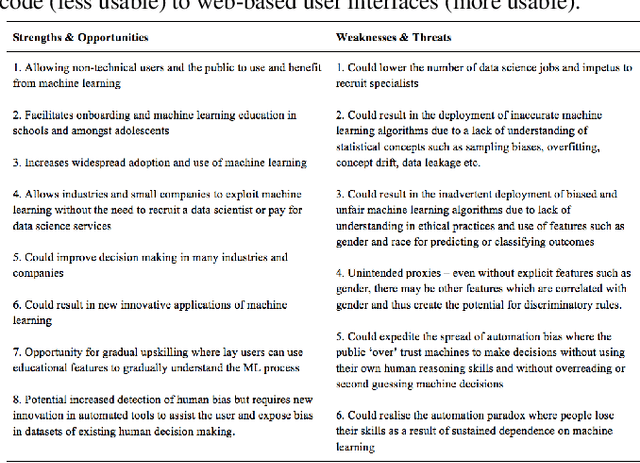
Abstract:Many industries are now investing heavily in data science and automation to replace manual tasks and/or to help with decision making, especially in the realm of leveraging computer vision to automate many monitoring, inspection, and surveillance tasks. This has resulted in the emergence of the 'data scientist' who is conversant in statistical thinking, machine learning (ML), computer vision, and computer programming. However, as ML becomes more accessible to the general public and more aspects of ML become automated, applications leveraging computer vision are increasingly being created by non-experts with less opportunity for regulatory oversight. This points to the overall need for more educated responsibility for these lay-users of usable ML tools in order to mitigate potentially unethical ramifications. In this paper, we undertake a SWOT analysis to study the strengths, weaknesses, opportunities, and threats of building usable ML tools for mass adoption for important areas leveraging ML such as computer vision. The paper proposes a set of data science literacy criteria for educating and supporting lay-users in the responsible development and deployment of ML applications.
Corporate Evidential Decision Making in Performance Prediction Domains
Feb 06, 2013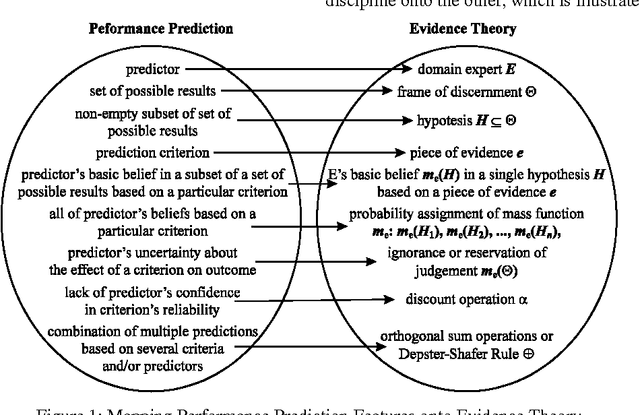
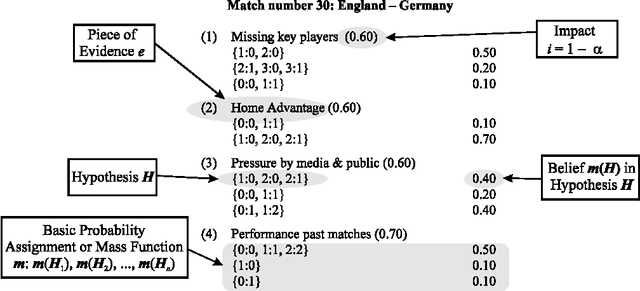
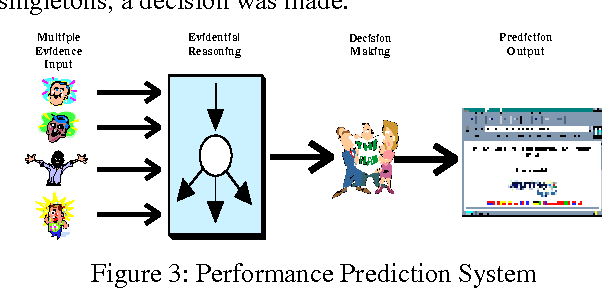
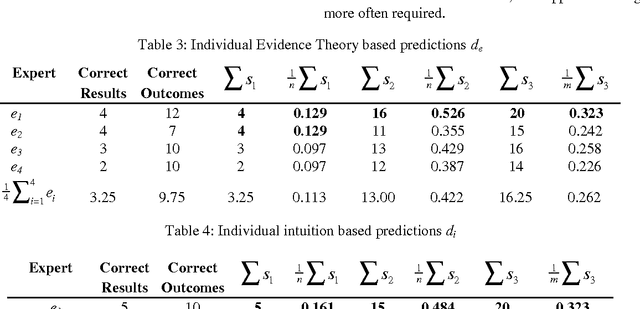
Abstract:Performance prediction or forecasting sporting outcomes involves a great deal of insight into the particular area one is dealing with, and a considerable amount of intuition about the factors that bear on such outcomes and performances. The mathematical Theory of Evidence offers representation formalisms which grant experts a high degree of freedom when expressing their subjective beliefs in the context of decision-making situations like performance prediction. Furthermore, this reasoning framework incorporates a powerful mechanism to systematically pool the decisions made by individual subject matter experts. The idea behind such a combination of knowledge is to improve the competence (quality) of the overall decision-making process. This paper reports on a performance prediction experiment carried out during the European Football Championship in 1996. Relying on the knowledge of four predictors, Evidence Theory was used to forecast the final scores of all 31 matches. The results of this empirical study are very encouraging.
 Add to Chrome
Add to Chrome Add to Firefox
Add to Firefox Add to Edge
Add to Edge